2025 has been touted as the “Year of the AI Agent”. In this article we will explore what AI agents are, where to find them and most importantly what they mean for your business (and your life?).
What are AI Agents?
AI agents are essentially virtual entities or software applications that can sense, reason, and act within an environment to achieve specific goals.
An AI agent takes generative AI to the next level. It doesn’t just generate a response, an email, or a document; it actually does something. An AI agent performs tasks, initiates transactions, and fixes problems. It learns the behaviour of a human performing mundane repetitive tasks and excels at them.
Three AI Agents Categories
AI agents can be categorised based on their complexity and autonomy:
- Reactive Agents respond to changes in their environment with pre-defined responses.
- Example: Customer service – Simple chatbots for customer support. A chatbot on an e-commerce website can answer straightforward queries, like “What is the return policy?” or “When will my order arrive?” without complex decision-making. These agents are highly efficient for handling repetitive inquiries, saving human agents for more nuanced interactions.
- Deliberative Agents include more sophisticated reasoning and planning capabilities. These agents go beyond simple responses by incorporating decision-making and planning. They analyse data, evaluate different options, and determine the best course of action based on pre-set goals.
- Example: Health Care – Deliberative agents in diagnostic support systems analyse medical images, such as X-rays, MRIs, or CT scans, to identify potential abnormalities or diseases. They rely on sophisticated algorithms that evaluate multiple factors, including patterns, shapes, and textures in medical images, to make recommendations. Check out the work that Harrison.AI are doing in this space
- Hybrid Agents combine reactive and deliberative elements, allowing them to respond immediately to changes in their environment while also performing complex reasoning and planning. This combination is critical in dynamic environments where both fast responses and long-term planning are necessary.
- Example: Self-Driving Cars – Companies like Tesla and Waymo (formerly the Google self driving car project) deploy hybrid agents in autonomous vehicles. For instance, a self-driving car reacts immediately to an obstacle appearing in its path (reactive) while also planning the safest route to the destination (deliberative).
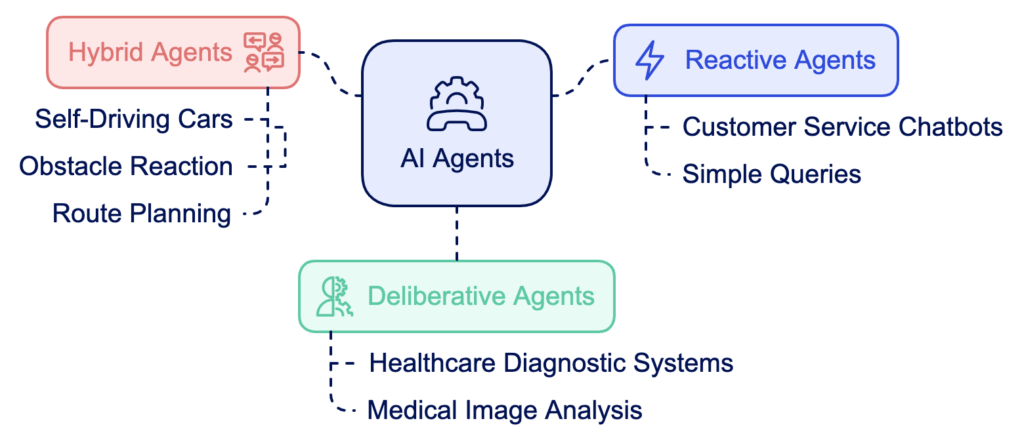
The Four Key Components of AI Agents
AI agents generally operate based on four key components:
- Perception: Collect data from their environment through sensors, APIs, or user interactions.
- Reasoning: Analyse data, identify patterns, and make decisions based on objectives.
- Learning: Use past experiences or datasets to improve over time, typically through machine learning models.
- Action: Execute tasks or communicate responses based on the analysis.
Where do you find AI Agents? and how to utilise them in your business?
AI agents vary widely based on their capabilities, and businesses can leverage them for numerous applications. If you’re an SME, you don’t have to worry about building these agents from scratch as the majority of software providers, already embedded in your world, are rolling them out.
We are also seeing more AI agent marketplaces and low code platforms popping up that are suitable for organisations aiming to develop AI-driven solutions without extensive programming expertise. If you’re interested in those, you should check out RelevanceAI and GravityAI.
Chatbots and Virtual Assistants:
Used in customer service, sales, and marketing. These agents handle queries, provide information, and help solve common issues.
-
- Can be found in :
- Microsoft Dynamics 365 introduces 10 new AI agents for Sales, finance and supply chain with the promise of more to come.
- Salesforce has announced the release of its Einstein SDR Agent, which will “autonomously engage with inbound prospects to nurture pipeline 24/7,”. They have also released Einstein Sales Coach Agent, a video likeness of a person that can guide salespeople through things such as rehearsing their sales pitch. Paired together, the Einstein SDR can qualify leads and hand over to Einstein sales coach to prepare the account executive for the customer interaction.
- Hubspot: Breeze Agents scales customer support with an AI-powered expert that automates ticket resolution.
- Can be found in :
Process Automation Agents:
Automate repetitive tasks, such as data entry, invoicing, or report generation. “These agents will be prompted with an end goal e.g Book an appointment for a customer, transfer data from this document to this database and then be empowered with the right tooling and context to take those actions on behalf of the company. They’ll be adaptable to various data inputs and capable of handling changes in business processes.” Andreessen horowitz -RIP to RPA The rise of intelligent automation.
-
- Can be found in:
- Atlassian’s Rovo is designed to streamline internal workflows and boost productivity. Rovo assists teams by transforming raw data into actionable insights, facilitating more focused and efficient work. Beta users reporting an average reduction of one to two hours per week on routine tasks.
- Coupa AI driven software has embedded AI agents into its platform to enhance procurement and inventory management functions such as spend analysis and inventory optimisation.
- Can be found in:
Recommendation Agents:
Suggest products, services, or content tailored to user preferences, widely used in e-commerce and content platforms.
-
- Can be found in:
- Bigcommerce’s newly released BigAI suite of products which include AI driven product recommendations
- Shopify Magic – An AI suite that assists in content creation, including product descriptions and email marketing, helping merchants streamline their operations.
- Can be found in:
Predictive Analytics Agents:
Provide business insights by forecasting trends, risks, and customer behaviours using historical data.
-
- Can be found in:
- Hubspot Breeze Intelligence is enhanced with advanced LLMs and AI data sourcing and consists of over 200 million buyer and company profiles. Breeze Intelligence improves form conversion rates, identify buyer intent from companies visiting your website, and keep your database fresh with regular updates.
- Intuit Quickbooks Assist is the new financial assistant that will use the power of generative AI (GenAI) to give you intelligent and personalised recommendations. It will do the hard work for you to fuel your small business and personal financial success.
- Xero’s “Just Ask Xero (JAX)” is designed to assist you wherever you work, automating accounting tasks and delivering personalised insights, so you can focus on what you do best. Its smart technology and conversational style is powered by generative AI.
- Can be found in:
Autonomous Agents:
Operate independently in dynamic environments. Examples include self-driving vehicles or the newly revealed OpenAI agent codenamed “operator”, which can take over a computer and perform tasks, autonomously. Anthropic and Google have also already announced similar agents, code named “computer use” and Jarvis” respectively.
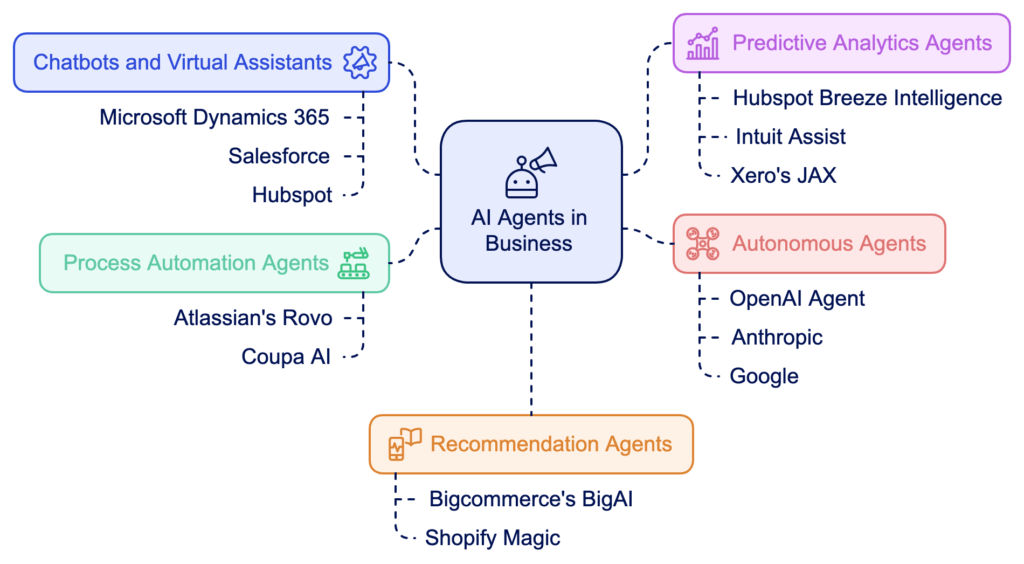
Challenges and Considerations
Despite the obvious advantages of outsourcing some of your business processes to this newly created AI workforce, deploying AI agents comes with challenges:
Data Privacy and Security:
Handling sensitive data requires robust security protocols and compliance with regulations. This means that your employees should refrain from prompting ChatGpt with sensitive private customer or company information. Ensure your company has the necessary data privacy and security protocols in place first. If you need more clarification, you should get professional advice and also refer to the also refer to the Voluntary AI Safety standards published by the Australian government.
Integration Complexity:
Ensuring AI agents work seamlessly with existing systems may require significant integration investment. We advise always starting with a clear objective and business use case outlining the specific goals and outcomes the AI agent should achieve. Once that’s defined, we recommend starting with pilot projects to test AI agents in a controlled environment and measure performance and ROI before scaling. As you scale, continuously learn and iterate.
Dependence on High-Quality Data:
The effectiveness of AI agents depends on the availability of clean, relevant data. Invest in data management practices to ensure high-quality, actionable data. If you still need to put that in place and need to know where to start – seek professional advice (We’re here to help). A well-defined data strategy is critical for the success of any digital transformation project, not just AI agents.
Ethics and Transparency:
AI decision-making needs to be transparent, especially in regulated industries, to maintain trust and accountability. Wherever possible AI agents should offer insights into their decision-making process, helping businesses maintain accountability.
Invest in Training and Supporting Your Human Workforce:
Ensure your team is part of the journey and is involved in selecting and deploying AI agents. They need to be equipped to manage and maintain AI agents, understand their outcomes, and understand the areas of their role where their skills will be better utilised. This should be a well-thought-out job design process and should not be left to chance.
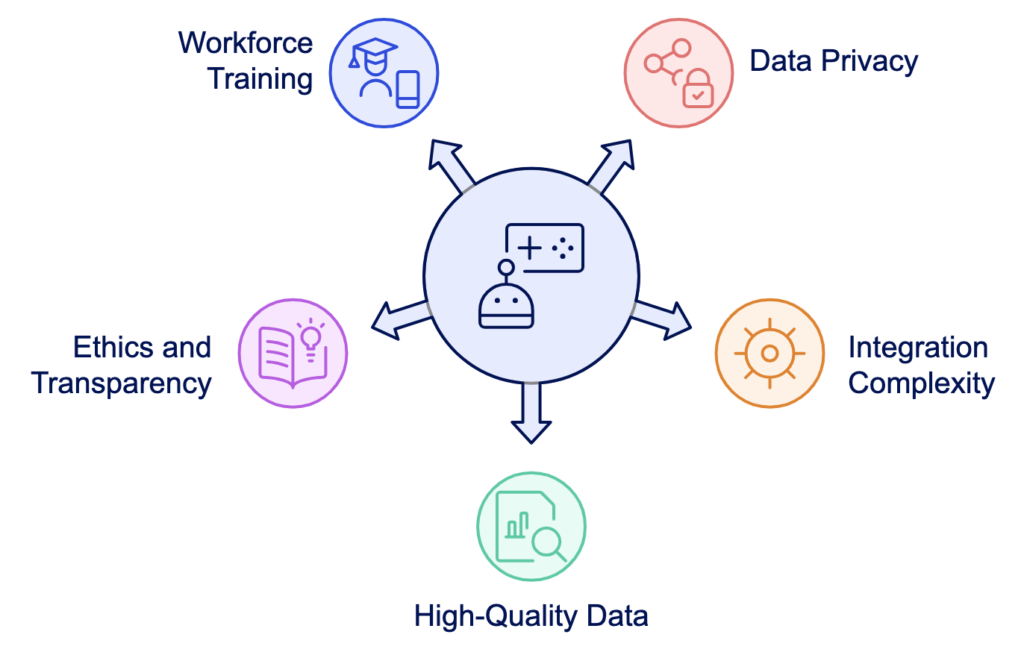
Planning is key
AI agents present a powerful opportunity for businesses, transforming everything from customer service to data-driven strategic decisions. For business decision-makers, understanding and strategically implementing AI agents can drive meaningful growth and operational advantages. Research suggests that realising value from AI projects is harder than the hype. Like any Digital Transformation initiative, in order to increase your chance for success, AI project implementation requires careful planning, execution, training and budgeting.
To check your readiness, read our recent article, Six Questions To Assess Your Company’s Digital Transformation Readiness
Enjoy reading about AI, Digital Transformation and Technology?
Here are some articles from our Digital Transformation series that you might enjoy:
How to turn Digital Transformation into competitive advantage?
Is Culture The Missing piece Of Your Digital Transformation Strategy?
Effective Change Management For Digital Transformation
Here are some of our favourite books on the topic:
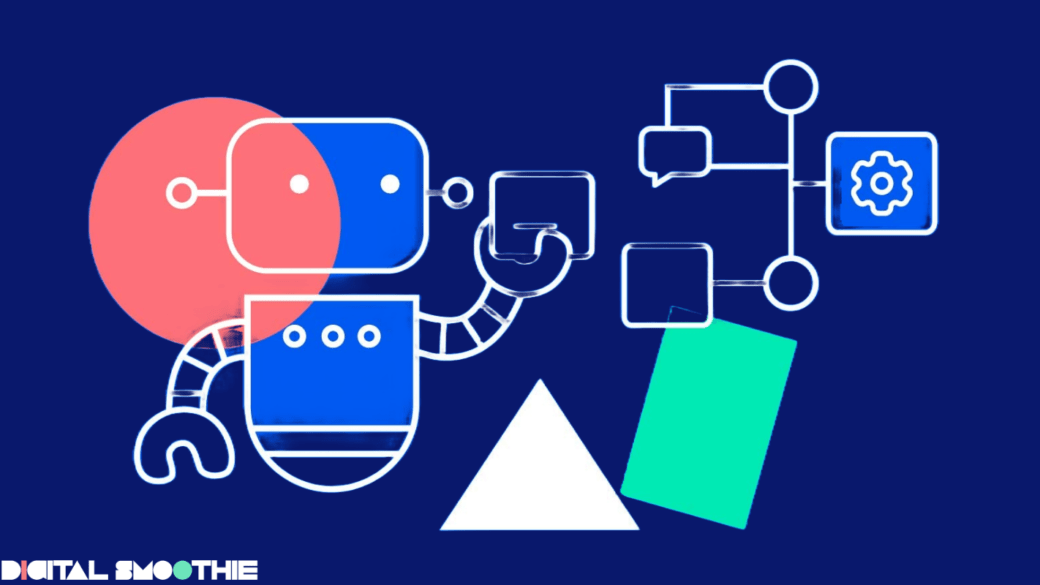
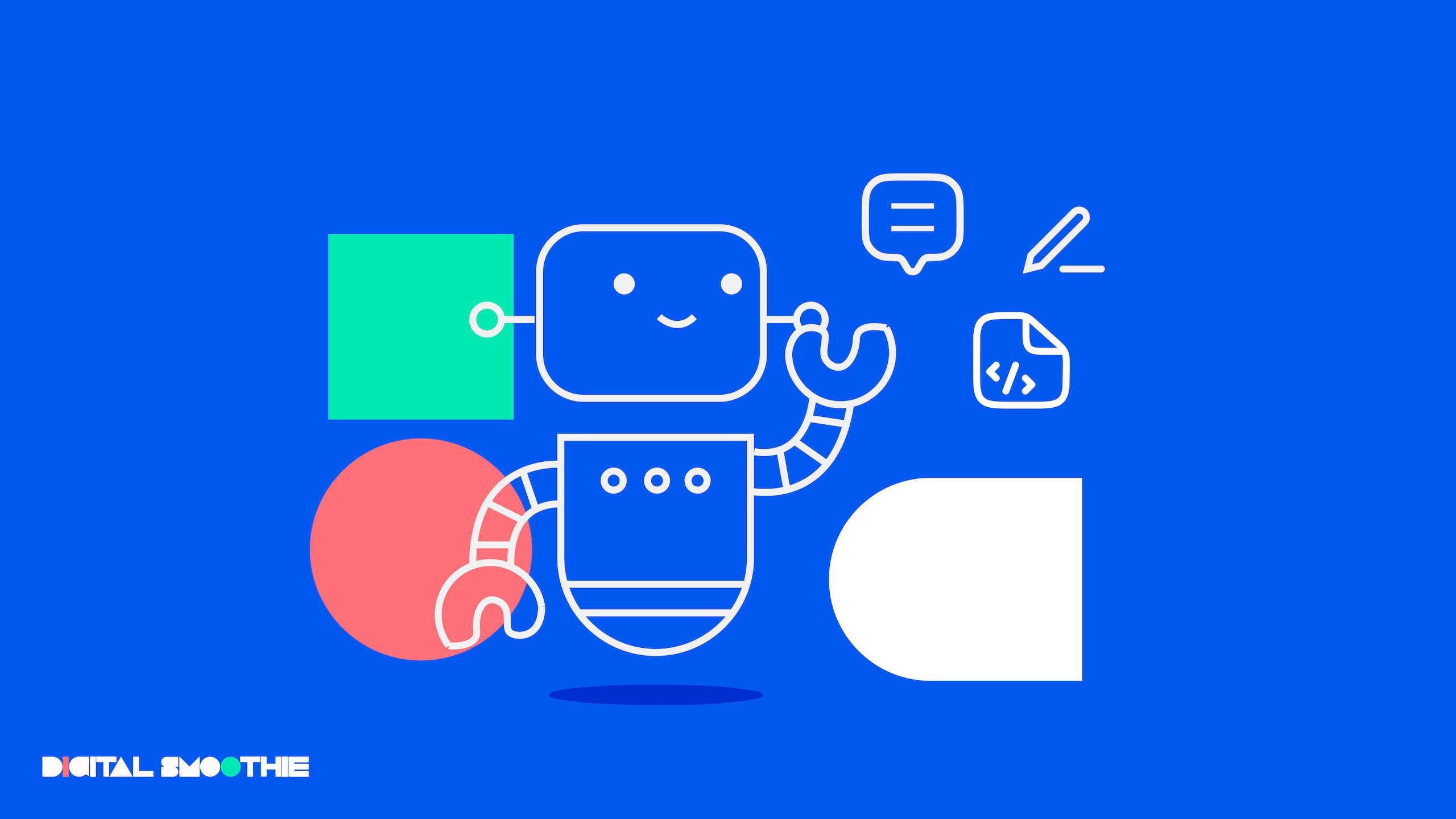
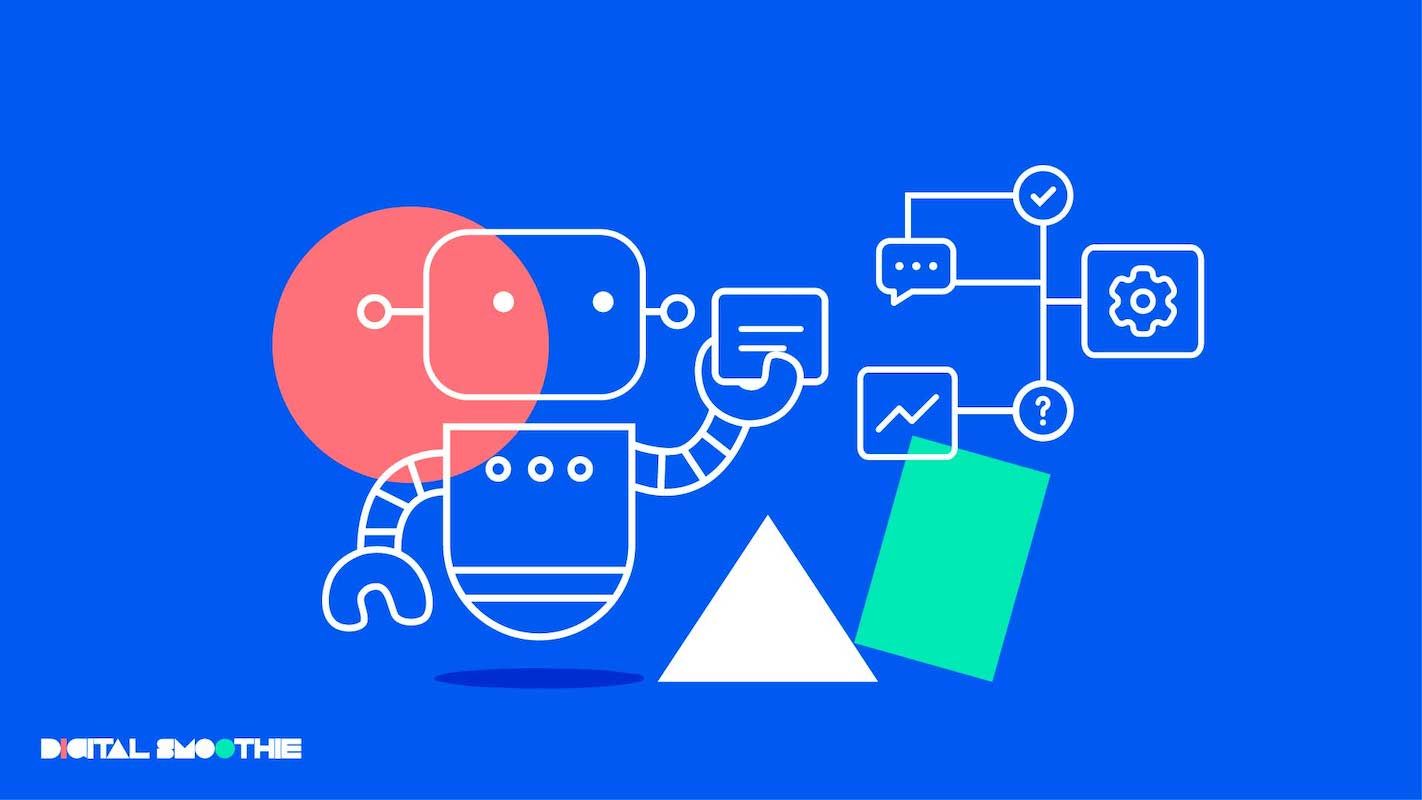
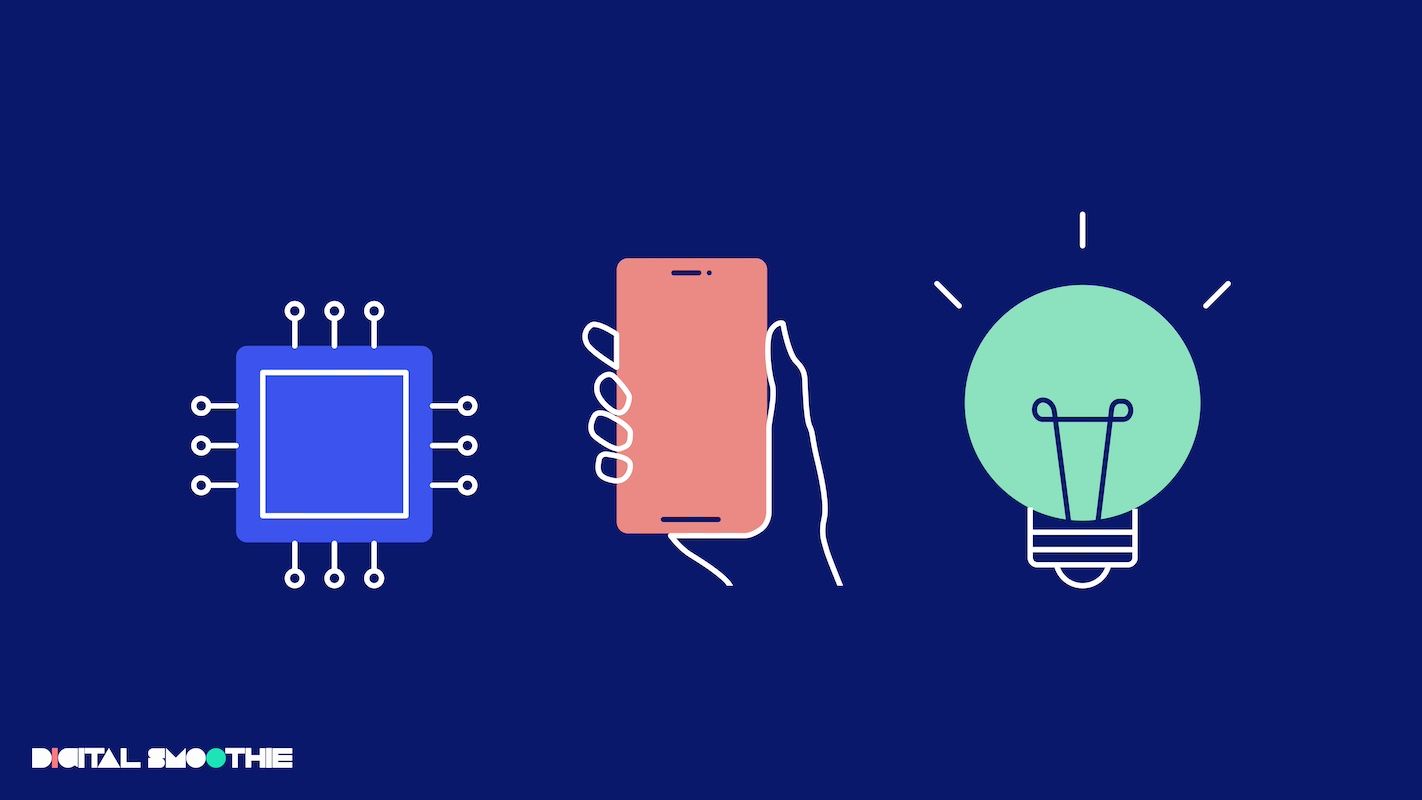
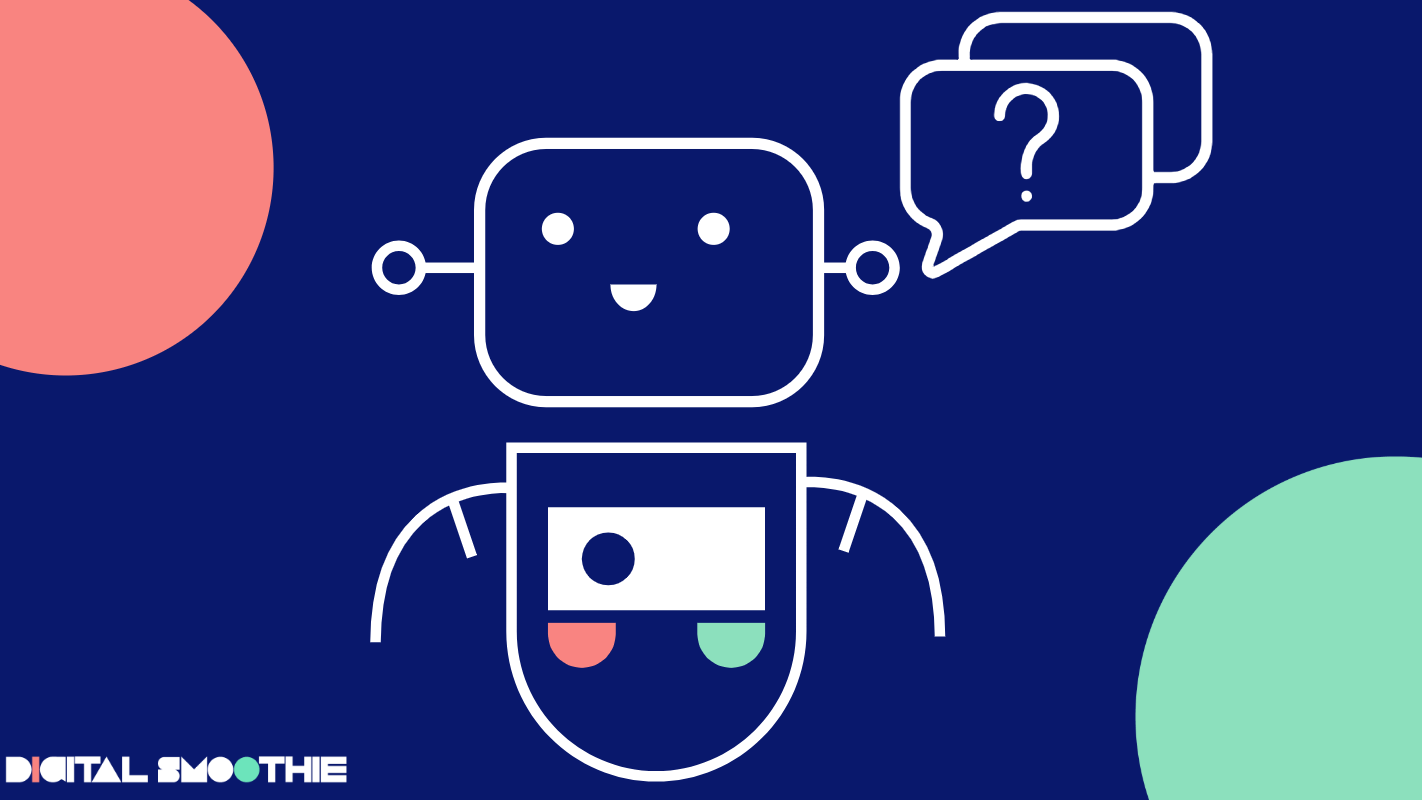


Leave a Reply